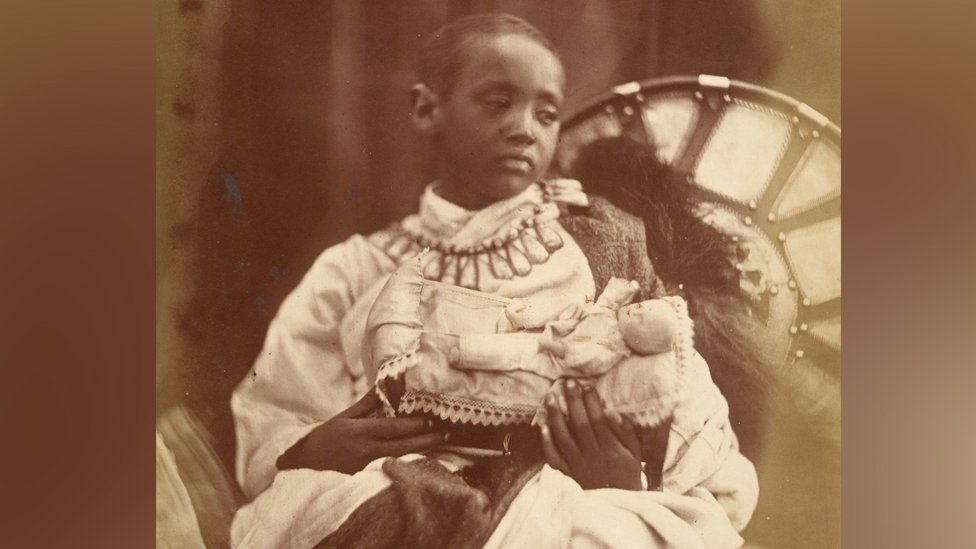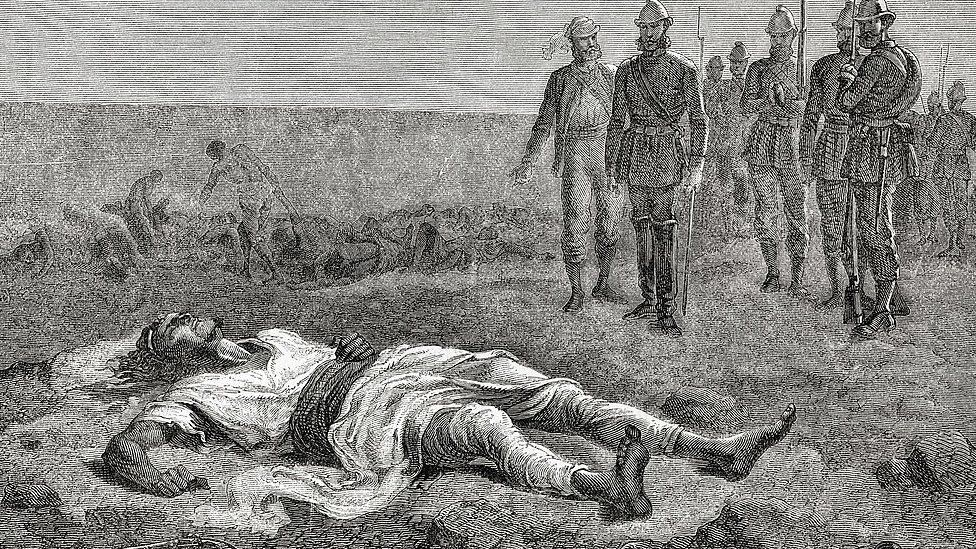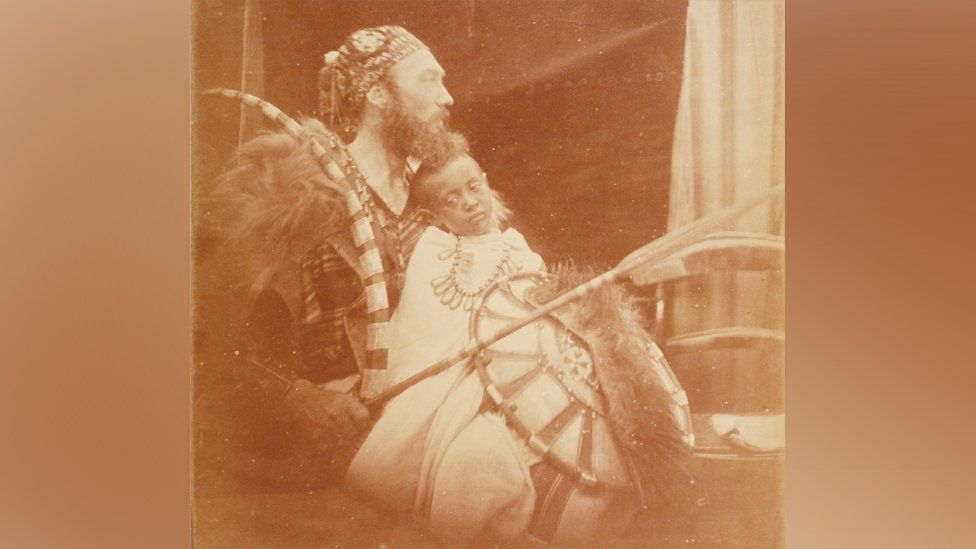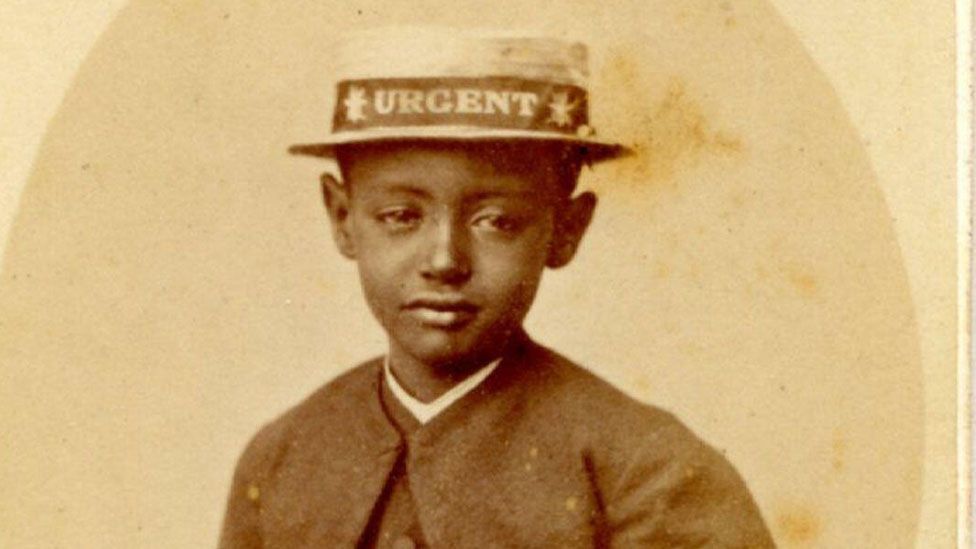Buckingham Palace has rejected a request to repatriate the remains of Prince Alemayehu, an Ethiopian prince who was laid to rest at Windsor Castle in the 19th century.
At the age of seven, Prince Alemayehu was brought to the UK as an orphan after his mother passed away during the journey.
Queen Victoria took a personal interest in him and arranged for his education, eventually organizing his burial at Windsor Castle when he tragically passed away at the age of 18.
However, his family has now expressed a desire for his remains to be returned to Ethiopia.
“We want his remains back as a family and as Ethiopians because that is not the country he was born in,” one of the royal descendants Fasil Minas told the BBC.
“It was not right” for him to be buried in the UK, he added.
But in a statement sent to the BBC, a Buckingham Palace spokesperson said removing his remains could affect others buried in the catacombs of St George’s Chapel in Windsor Castle.
“It is very unlikely that it would be possible to exhume the remains without disturbing the resting place of a substantial number of others in the vicinity,” the palace said.
The statement added that the authorities at the chapel were sensitive to the need to honour Prince Alemayehu’s memory, but that they also had “the responsibility to preserve the dignity of the departed”.
It also said that in the past the Royal Household had “accommodated requests from Ethiopian delegations to visit” the chapel.

The circumstances leading to Prince Alemayehu’s arrival in the UK at such a young age were a result of imperial actions and diplomatic failures.
In 1862, Emperor Tewodros II, the prince’s father, sought to forge an alliance with the UK in an effort to strengthen his empire. However, his letters requesting an audience with Queen Victoria went unanswered, leaving him frustrated and disillusioned.
Driven by anger and impatience, the emperor took matters into his own hands by holding several Europeans, including the British consul, as hostages.
This bold move triggered a massive military expedition, comprising approximately 13,000 British and Indian troops, with the objective of rescuing the captives. Remarkably, an official from the British Museum was also part of this force.
In April 1868, the expedition laid siege to Emperor Tewodros’ mountain fortress at Maqdala, located in northern Ethiopia. Overwhelming the defenses within a matter of hours, the British forces successfully overpowered the stronghold.
The emperor decided he would rather take his own life than be a prisoner of the British, an action that turned him into a heroic figure among his people.

After the battle, the British plundered thousands of cultural and religious artefacts. These included gold crowns, manuscripts, necklaces and dresses.
Historians say dozens of elephants and hundreds of mules were needed to cart away the treasures, which are today scattered across European museums and libraries, as well as in private collections.
The British also took away Prince Alemayehu and his mother, Empress Tiruwork Wube.
The British may have thought this was to keep them safe and prevent them being captured and possibly killed by Tewodros’ enemies, who were near Maqdala, according to Andrew Heavens, whose book The Prince and the Plunder recounts Alemayehu’s life.
Following his arrival in Britain in June 1868, the prince’s predicament and his status as an orphan elicited the sympathy of Queen Victoria. The two met at the queen’s holiday home on the Isle of Wight, just off England’s south coast.
She agreed to support him financially and put him in the guardianship of Captain Tristram Charles Sawyer Speedy, the man who had accompanied the prince from Ethiopia.

They first lived together on the Isle of Wight and then Captain Speedy took him to other parts of the world, including India.
But it was decided that the prince should have a formal education.
He was sent to the British public school Rugby but he was not happy there. He later moved to the Royal Military College in Sandhurst where he was subjected to bullying.
The prince had a “hankering” to return home, correspondence quoted by Heavens says, but that idea was swiftly quashed.
“I feel for him as if I knew him. He was dislocated from Ethiopia, from Africa, from the land of black people and remained there as if he had no home,” Ethiopian royal descendent Abebech Kasa told the BBC.
Eventually, Alemayehu ended up being tutored in a private home in Leeds. But he became ill, possibly with pneumonia, and at one point refused treatment thinking he had been poisoned.
After a decade in exile the prince died in 1879 at the age of just 18.
His illness had become the subject of articles in the national press and Queen Victoria wrote in her diary of her sadness at his death.
“Very grieved and shocked to hear by telegram, that good Alemayehu had passed away this morning. It is too sad! All alone, in a strange country, without a single person or relative, belonging to him,” she said.
“His was no happy life, full of difficulties of every kind, and was so sensitive, thinking that people stared at him on account of his colour… Everyone is very sorry.”
She then arranged for his burial at Windsor Castle.

Demands that the body should return are not new.
In 2007 the country’s then-President Girma Wolde-Giorgis sent a formal request to Queen Elizabeth II for the body to be sent back, but those efforts proved fruitless.
“We want him back. We don’t want him to remain in a foreign country,” Ms Abebech said.
“He had a sad life. When I think of him I cry. If they agree to return his remains I would think of it as if he came home alive.”
She had hoped that she would get a positive response from newly crowned King Charles III.
“Restitution is used as a way to bring reconciliation, to recognise what was wrong in the past,” says Professor Alula Pankhurst, a specialist in British-Ethiopian relations.
He believes the return of the body would be “a way for Britain to rethink its past. It’s a reflection and coming to terms with an imperial past.”
Source: BBC


